Brian Solis's Blog, page 6
May 27, 2025
ServiceNowAI Maturity Index: A 5-Stage Framework Toward Enterprise AI Transformation
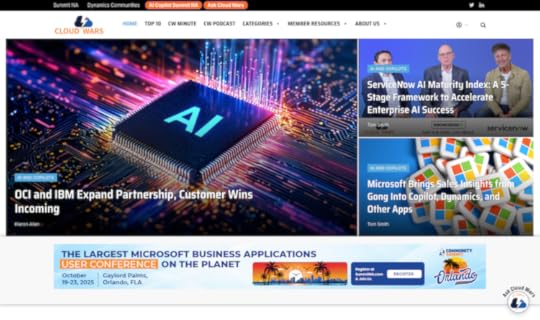
Unlocking the Future of Enterprise AI: Insights from the ServiceNow AI Maturity Index
At ServiceNow Knowledge 2025 in Las Vegas, I had the privilege of joining Chief Innovation Officer Dave Wright, my boss, and Tom Smith, Editor in Chief, analyst, at Cloud Wars, to discuss a pivotal development in the AI landscape: the ServiceNow AI Maturity Index. This comprehensive framework, built on insights from over 4,500 global organizations, offers a structured approach to evaluating and advancing AI strategies within enterprises.
Accelerating Enterprise AI Success: Introducing the ServiceNow AI Maturity Index
At ServiceNow, we believe the future isn’t something we enter, it’s something we architect and influence. I recently had the opportunity to join Dave Wright and Tom Smith to explore insights from the AI Maturity Index. This isn’t just another framework. It’s a living blueprint, shaped by deep research across more than 4,500 global organizations, designed to help companies better understand where they are in their AI journey—and more importantly, how to move forward with intention and confidence.
What Is the AI Maturity Index?The AI Maturity Index categorizes organizations into five distinct stages, providing a roadmap for companies to assess their current AI capabilities and identify areas for growth. This model emphasizes the importance of governance, adoption, and delivering tangible business value from AI investments
Why This Matters Now
AI is no longer a buzzword; it’s a business imperative. But too often, organizations dive in without a clear strategy or governance model. That’s where the AI Maturity Index comes in. It breaks down the path to AI excellence into five distinct stages, helping leaders identify where they stand and what steps to take to drive meaningful outcomes.
In Our Conversation, We Explored:
The origin of the Index and how this concept came to life. Spoiler alert: it born out of the need for a real, practical roadmap to help leaders operationalize AI.
Surprising insights: Many organizations report a dip in AI maturity as they scale. It’s not always a straight line. And understanding why is key to moving forward.
The future of governance and value: We unpacked why maturity isn’t just about using AI—it’s about aligning it with purpose, trust, and measurable impact.
If you’re leading digital or AI transformation, or just trying to make sense of where your organization fits in this rapidly shifting landscape, this conversation is for you.
Watch the video here – and discover where you are on the AI maturity curve.
Genesis and Goals of the AI Maturity Index (00:23)
The conversation takes place at the ServiceNow Knowledge 25 event in Las Vegas, featuring ServiceNow executives Wright and Solis. Wright explains the creation of the AI Maturity Index, driven by the need for a standard maturity index for customers deploying AI. The index was developed by interviewing 4,500 companies and identifying five criteria to rate maturity levels. The index provides a five-stage maturity model, allowing companies to plan and track their AI journey.
Industry and Geographic Insights (01:41)
Smith inquires if the surveyed companies are only ServiceNow customers or a broader range. Wright confirms the survey included ServiceNow customers and highlights the insights gained on differences based on industry and geography. The index offers a 3-D view of maturity progression, considering industry and geographic factors. Data governance and AI governance are critical; governance is often a barrier to AI advancement.
Counterintuitive Findings on AI Maturity (03:18)
Smith discusses the counterintuitive finding that AI maturity is down despite new technology and use cases. Wright attributes the decrease to the overwhelming number of new technologies and use cases, leading to a reevaluation of AI strategies. A CIO‘s comment at a meeting highlights the realization that AI’s potential is greater than initially understood. The discussion touches on the concept of a “control-delete moment,” where companies reconsider their AI strategies.
Challenges and Opportunities in AI Deployment (05:59)
Solis and Wright discuss the complexity and speed of AI evolution, leading to a need for better understanding and governance. Global CIO Rachel Sandel was at the event. Her company, Orica, is mentioned as an example of a company with advanced AI governance structures. Rather than relying on isolated IT setups, the discussion points to centralized AI deployment as key to scaling impact across the organization. Solis notes that only 30% of companies deploy AI use cases across multiple functions, reinforcing silos rather than breaking them down.
Governance and Measurement in AI (08:44)
Wright and Solis discuss the need for better governance and data governance in AI deployment. The conversation shifts to measurement, with traditional IT metrics being reevaluated in the context of AI. New metrics like avoided failures and automated processes are introduced, reflecting the evolving nature of AI measurement. The discussion touches on measuring the value extracted from AI investments.
People Considerations and Organizational Impact (11:07)
Smith raises the issue of people considerations and organizational impact in AI deployment. Solis emphasizes the importance of talent and skills in AI roadmaps, with a focus on talent and skills as key pillars. The conversation explores the potential for AI to create new roles and opportunities for human-machine collaboration. Wright talks about the need for organizations to have tough conversations about AI’s impact on jobs and workforce transformation.
Industry Leadership in AI (16:02)
Smith asks about the top three industries leading in AI maturity: technology, heavy manufacturing, and banking. Wright attributes the leadership to these industries’ early adoption of automation, which facilitated rapid AI adoption. The discussion includes the balance between automation and innovation, with a caution against automating to mediocrity. Solis adds that customer experience should be a key focus in AI deployment, using Amazon as an example of successful automation and customer obsession.
Platform Approach and Business Transformation (21:46)
Smith inquires about the benefits of a platform approach in AI deployment. Wright explains that a platform approach provides centralized control and visibility, essential for managing AI agents. The AI Control Tower concept is introduced, allowing for the management of agents from different vendors within a unified platform. Solis talks about how businesses must remodel for an era of AI, moving beyond digital transformation to true business transformation.
Final Thoughts and Closing Remarks (24:52)
Wright and Solis discuss dreaming bigger in AI deployment. There’s a need for organizations to think beyond cost savings and focus on value creation and business transformation. The discussion concludes with a call to action for organizations to explore new possibilities with AI and reimagine their business models.
The post ServiceNowAI Maturity Index: A 5-Stage Framework Toward Enterprise AI Transformation appeared first on Brian Solis.
May 25, 2025
Keynote: Innovation Starts Where Certainty Ends
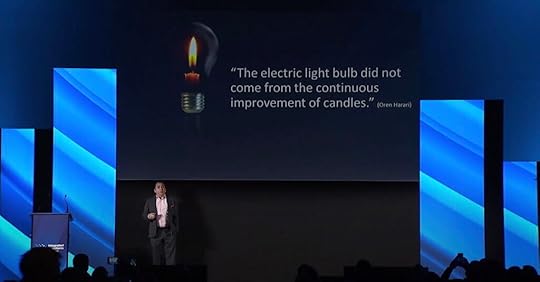
 The light bulb wasn’t the result of better candles.
The light bulb wasn’t the result of better candles.
Think about that.
Innovation rarely comes from perfecting the past, it comes from experimenting forward and eventually jumping to the next curve.
In this short video, I share the story of how true innovation requires moving beyond what works to chase what could be. It’s uncomfortable. It’s risky. But it’s necessary.
Iteration is safe, but finite.
Innovation is bold, but risky.
The future won’t come from enhancing what we already know. The future will come from exploring what we don’t.
Watch now…especially if you’re a leader, founder, or change-maker at the edge of what’s next.
Book Brian to speak at your next event!
The post Keynote: Innovation Starts Where Certainty Ends appeared first on Brian Solis.
May 23, 2025
Keynote: Most businesses have no clue what’s about to hit them
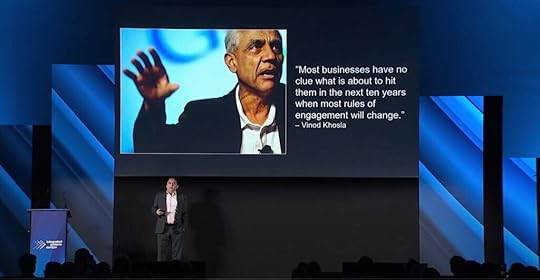
 “Most businesses have no clue what’s about to hit them.”
“Most businesses have no clue what’s about to hit them.”
Let’s explore the seismic shift unfolding now and over the next decade…where the old rules of business no longer apply. It’s time to challenge ourselves to stop waiting for direction and start shaping the future.
With AI accelerating change and organizations struggling to adapt, this is a wake-up call for anyone serious about staying relevant.
If you’re navigating uncertainty, this is for you…
The post Keynote: Most businesses have no clue what’s about to hit them appeared first on Brian Solis.
May 21, 2025
elEconomista.es: La IA debe potenciar nuestra creatividad y capacidad, no limitarla

Screenshot
The financial daily elEconomista.es, hosted an interview, which just published today. The conversation explores how organizations can drive meaningful transformation through responsible AI, digital humanism, and human-centered innovation.“Corremos el riesgo de que la tecnología nos modele, en lugar de ser nosotros quienes configuremos cómo la utilizamos”“We run the risk of being shaped by technology, rather than us shaping how we use it.”
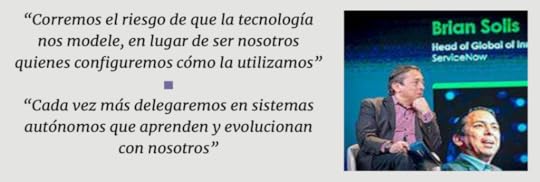
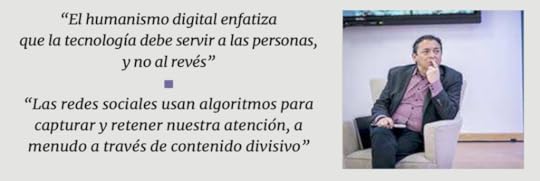
The post elEconomista.es: La IA debe potenciar nuestra creatividad y capacidad, no limitarla appeared first on Brian Solis.
May 9, 2025
CIO España: AI is a paradigm shift by requiring organizations to rethink the way they operate
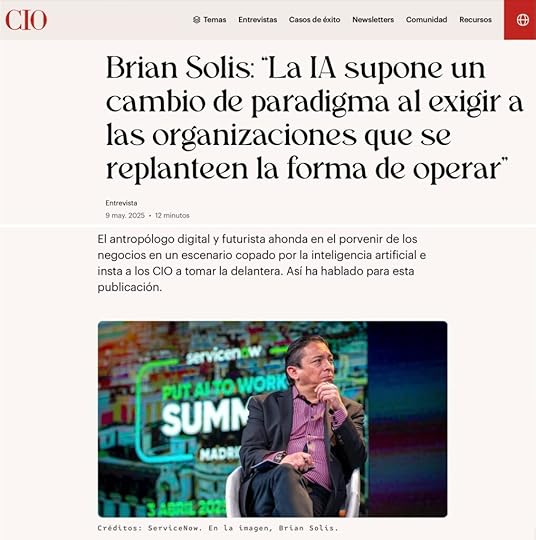
Brian Solis on Stage at ServiceNow’s AI Summit, Madrid, SpainIrene Iglesias Álvarez, CIO España
En el marco de la celebración del evento #PutAItoWork 2025 de ServiceNow, entrevistamos al antropólogo digital y futurista, Brian Solis, para tomar el pulso a la tecnología que más clamores parece estar levantando en los últimos tiempos: la #IA.
El antropólogo digital y futurista ahonda en el porvenir de los negocios en un escenario copado por la inteligencia artificial e insta a los CIO a tomar la delantera. Así ha hablado para esta publicación.
Presentado en sociedad como antropólogo digital y futurista, el perfil de Brian Solis bien podría considerarse una rara avis dada su singularidad; sin embargo, en un escenario en el que parecen brotar evangelistas por doquier al abrigo de la digitalización, su figura también podría haberles pasado desapercibida. Precisamente por eso, aprovechando su parada en la capital en el marco de la celebración del evento Put AI to Work Summit 2025 de ServiceNow, CIO ESPAÑA se sentó el pasado mes de abril con el orador de renombre mundial para tomar el pulso a la tecnología que más clamores parece estar levantando en los últimos tiempos: la inteligencia artificial (IA).
El ejecutivo habla con razón de causa, parece sentar cátedra en una conversación que domina con agudeza. Y es que la experiencia es un grado, algo que queda patente al conocer su labor al frente de la compañía de desarrollo de software: el asesoramiento a líderes tecnológicos y empresariales a lo largo y ancho de la geografía sobre estrategias de innovación y transformación digital. Por si esto no fuera un trabajo a tiempo completo, Solis también atesora un palmarés de publicaciones que versan sobre el futuro de los negocios, el trabajo, la digitalización y la innovación en sectores como el comercio minorista, la salud, los servicios financieros, los seguros y el sector público.
The post CIO España: AI is a paradigm shift by requiring organizations to rethink the way they operate appeared first on Brian Solis.
May 5, 2025
Interview: Transforming Leadership to Reshape the Future of Innovation

Photo by james chan on Unsplash
If there were ever a time for transformation and innovation, it’s now. But how do you transform leadership? Where do you start? 
My friend Braden Kelley and I spent some time exploring how leadership must evolve in an era of AI, disruption, and accelerating change.
If you’re a business leader navigating uncertainty or driving transformation, these insights will challenge your assumptions and help reframe your role in building the future.
Key Takeaways: Mindset, imagination, and leadership are innovation’s greatest catalyst — not technology.
Mindset, imagination, and leadership are innovation’s greatest catalyst — not technology.
 Transformation begins with a “mindshift”: unlearning outdated models and embracing new ways of thinking.
Transformation begins with a “mindshift”: unlearning outdated models and embracing new ways of thinking.
 Leaders must move from reactive to proactive, becoming architects of the future, not just managers of the present.
Leaders must move from reactive to proactive, becoming architects of the future, not just managers of the present.
 Culture is the soil for innovation — leaders must create environments of psychological safety, experimentation, and trust.
Culture is the soil for innovation — leaders must create environments of psychological safety, experimentation, and trust.
 Legacy thinking holds organizations back — especially in times of exponential technological advancement.
Legacy thinking holds organizations back — especially in times of exponential technological advancement.
 Self-awareness and curiosity are gifts. The best leaders ask better questions, inspiring vision, curiosity, and action in their teams.
Self-awareness and curiosity are gifts. The best leaders ask better questions, inspiring vision, curiosity, and action in their teams.
Please read and share your ideas and lessons!
The post Interview: Transforming Leadership to Reshape the Future of Innovation appeared first on Brian Solis.
May 4, 2025
AI cannot build intuition, understanding, or empathy
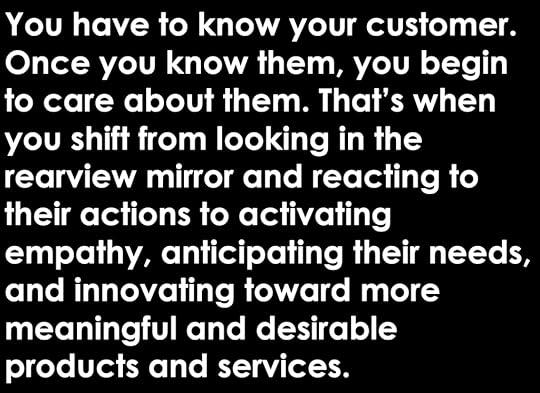
AI cannot build intuition.
AI cannot build understanding.
AI cannot build empathy.
You have to know your customer. Once you know them, you begin to care about them. That’s when you shift from looking in the rearview mirror and reacting to their actions to activating empathy, anticipating their needs, and innovating toward more meaningful and desirable products and services. 

The post AI cannot build intuition, understanding, or empathy appeared first on Brian Solis.
Marketing: 4 Langkah Penting Menjangkau Generasi C yang Sulit Dipahami

Via Marketing.co.id: Reinventing the Future by Cecep Supriadi
Dalam artikel ini Anda akan menemukan 4 langkah penting melibatkan brand dengan generasi CMarketing.co.id – Berita Marketing | Generasi C menuntut pelayanan prima, harga yang kompetitif, serta pengiriman cepat. Ketika mereka tidak mendapatkan apa yang diinginkan, teman-teman, pengikut, serta penggemar mereka akan mengetahuinya.
Lalu, bagaimana kita bisa dengan efektif berkomunikasi dengan mereka? Brian Solis dalam tulisannya di Socialmediatoday mengatakan, kita bisa mulai dengan menyadari bahwa kita merupakan bagian dari generasi C.
Apa itu generasi C, dan bagaimana cara melibatkan brand dengan generasi C?Connected Generation (Generasi C) merupakan kelompok antargenerasi yang didasarkan pada perilaku digital yang intensif, bukan usia. Mereka adalah pelanggan yang selalu terhubung dengan internet, atau menggunakan teknologi secara luas, termasuk perangkat pintar dan media sosial.
Baca Juga: Spradz!, Wadah Komunitas Buzzer dan Influencer Yang Lagi NgetrenGenerasi C adalah siapa saja yang aktif dalam lingkungan digital dan menganggap teknologi sebagai bagian integral dari kehidupan sehari-hari. Singkatnya, Generasi C didefinisikan oleh gaya hidup, bukan oleh tahun lahir.
Karakteristik generasi CGenerasi C adalah mereka yang hidup dan berinteraksi secara intensif dengan teknologi, termasuk media sosial, perangkat digital, dan internet. Mereka memiliki kecenderungan menggunakan teknologi secara luas dan terintegrasi dalam kehidupan sehari-hari. Berikut karakteristik generasi C:
Menjadi konsumen yang terhubung, sering berinteraksi dengan brand, dan konten secara online.Aktif di media sosial dan platform online lainnya, danSelalu berinteraksi dan memeroleh informasi melalui internet.Berbeda dengan generasi lainnya seperti X, Y, dan Z yang didefinisikan tahun lahir dan karakteristik umum yang terkait dengan usia mereka, generasi C lebih menekankan pada perilaku digital yang intensif serta bagaimana teknologi membentuk cara mereka berinteraksi dengan dunia. Contohnya, siapa saja yang aktif di media sosial, menggunakan perangkat pinter untuk berkomunikasi dan berbelanja, atau secara teratur mengakses internet untuk mencari informasi dan hiburan bisa dianggap sebagai bagian dari generasi C.
Nah, setelah mengetahui apa dan siapa generasi C, langkah berikutnya adalah mencari langkah berikutnya untuk melibatkan diri dengan mereka yang sulit dipahami ini. Agar sukses, kita harus berpikir seperti seorang pemasar yang terhubung dengan internet.
Berikut 4 langkah penting melibatkan diri (brand) dengan generasi C, audiens yang sulit dipahami:Harus pedeSegala sesuatu yang mereka lakukan, pikirkan, serta alami selalu dibagikan melalui media sosial. Kabar baiknya, kita tak perlu lagi harus menebak pesan apa yang relevan.
Kita bisa mempelajarinya melalui percakapan, koneksi serta menggunakan wawasan tersebut untuk menginformasikan kampanye global, nasional, dan hyper-local yang beresonansi dengan para pelanggan.
Pahami satu per satuSetelah berhasil menarik perhatian bahkan membuat mereka tertarik, apa yang harus kita lakukan untuk mengubahnya menjadi aksi? Tentunya dengan memanfaatkan insight yang kita dapatkan dari setiap perjalanan hidup mereka.
Ketimbang memaksa semua orang melalui saluran pemasaran, penjualan dan layanan yang sama, lebih baik memosisikan diri sebagai pemberi informasi terpercaya, membantu mereka secara pribadi.
Bekerja sama dengan pihak lainTanpa sepengetahuan Anda, orang-orang membicarakan brand Anda. Pelanggan potensial bertanya melalui media sosial, membandingkan harga menggunakan aplikasi mobile, membaca ulasan secara real-time, serta melihat video untuk mengetahui produk lebih lanjut.
Baca Juga: 4 Solusi Konvergence untuk Bantu Brand Tingkatkan KonversiMereka bisa membeli atau tidak tanpa pernah berkomunikasi dengan Anda sekalipun. Sayangnya, Anda tidak bisa begitu saja masuk dalam percakapan tersebut. Anda membutuhkan orang lain atau partner untuk mendapatkan kepercayaan mereka. Anda bisa bekerja sama dengan influencer atau komunitas misalnya?
Membangun perjalanan baru yang dinamisDengan menyelaraskan strategi marketing serta layanan dengan kebutuhan generasi C, kita dapat menjadi rekan terpercaya untuk pelanggan.
Ketika saluran dan pesan sejalan dengan apa yang mereka cari dan tersedia tepat ketika mereka membutuhkannya, kita akan mendapatkan lebih dari sekadar loyalitas dan kepercayaan. Kita akan mengubah strategi marketing serta cara melakukan bisnis.
The post Marketing: 4 Langkah Penting Menjangkau Generasi C yang Sulit Dipahami appeared first on Brian Solis.
What Got You Here Will Bury You Tomorrow: You Can’t Lead the Future with Yesterday’s Mindset
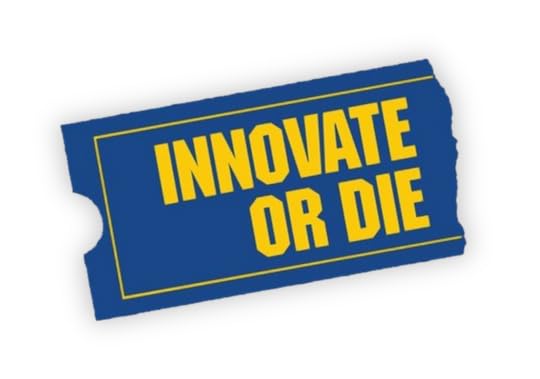
Disrupt yourself — or be disrupted.
We’re not easing into the future. We’re being thrown into it, wave after wave. And most businesses are still optimizing yesterday instead of inventing tomorrow.
We now live in a Novel Economy — where change is constant, disruption is a given, and a mindset shift isn’t optional.
The future is already here. And I believe it happens to you or because of you.
The disruptions we faced over the years, political, societal, technological, aren’t slowing down or easing up. And yet we with every wave that arrives, we react. We navigate. We adapt and learn to become more resilience. Some leave that work to others and some don’t see the need to change at all. But for the most part, at scale, we don’t study the future, seek the next disruption, or forecast scenarios to thrive against the unknown. We don’t anticipate. Even in the present, we don’t transform against current waves of disruption. Combined with not innovating toward a future we can learn to see and expect, and to some extent, model, we continue to script disruption in to the playbook of business as usual.
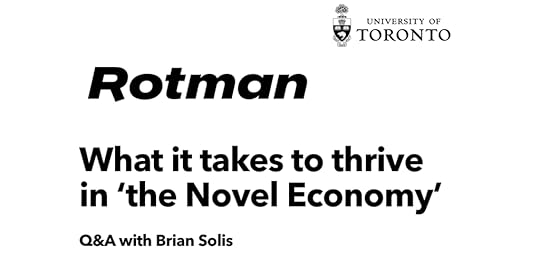
We now live in a Novel Economy. The word ‘novel’ simply means new or unusual, and through an optimistic lens, in an interesting way. And when everything is new or unusual, innovation becomes a catalyst for creating a future that wouldn’t have existed without you. At its core, innovation is about creating new value, something new that you didn’t or couldn’t do yesterday. Compare that to iteration, where we improve what we did yesterday to work better tomorrow. It’s iteration, not innovation, at scale, that represents how organizations and leaders are responding to disruption.
Scaling yesterday’s thinking won’t solve tomorrow’s problems. At some point, iteration eventually accelerates irrelevance or worse, obsolescence.
Some of the disruptive examples off the top of my head include 2015 (BREXIT), 2016 (U.S. election) 2020 (pandemic), 2022 (generative AI), 2024 (U.S. election), 2025 (rise of AI agents and agentic enterprises), 2026–2027 (the rise of AI employees), 2030 (the shift to autonomous functions). It seems that we haven’t quite accepted our new reality, that scaling business as usual, making it more efficient and cost effective, and optimizing yesterday’s work isn’t the moonshot that will help today’s companies thrive in a future where disruption is not only a given, it’s unknown, uncharted, and as such, a threat.
It’s time for a mindshift.
Without a mindshift, tomorrow’s North Star looks a lot like it did yesterday. And at some point, disruption becomes insurmountable.
If you’re waiting for someone to tell you what to do, you are on the wrong side of disruption. To become better, to find answers, to finding meaning and direction in the unknown, to lead against disruption, you must first disrupt yourself.
Become the disruptor vs. the disrupted.
What it takes to thrive in ‘the Novel Economy’Recently, I sat down with Karen Christensen, Editor in Chief, of Rotman Management Magazine to explore what it takes to thrive in a Novel Economy. It would mean a lot if you could make time to give it a read and share your thoughts and ideas with me.


The following is a list of questions we explore…
You refer to our current environment as ‘the Novel Economy.’ How do you define that term — and why does it demand a ‘mindshift’ from individuals and organizations?
Describe the difference between microtrends, macrotrends and megatrends — and why we need to keep an eye on all of them.
You believe that a self-aware mind is a shiftable mind. Please explain.
What key lessons have you learned from working closely with companies like Airbnb, Uber and Spotify?
Describe the mindshift(s) that Ford has made in order to compete with Tesla.
Please briefly summarize the six stages of your mindshifting framework.
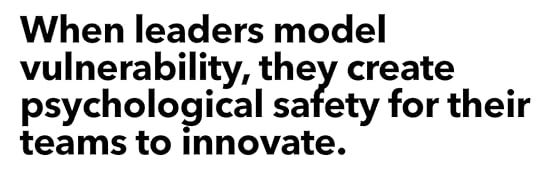
Please briefly summarize the six stages of your mindshifting framework.
Why are a Beginner’s Mind and a Growth Mindset particularly valuable in the Novel Economy?
What can a leader do to foster a growth mindset on their team?
For readers who want to embrace mindshifting, what are the first steps?
Please do give it a read, and let’s become the leaders for a better tomorrow, together!
The post What Got You Here Will Bury You Tomorrow: You Can’t Lead the Future with Yesterday’s Mindset appeared first on Brian Solis.
April 25, 2025
Van automatisering naar innovatie: hoe AI ons werk fundamenteel gaat veranderen

A special contribution to Techzine
Waar technologie voorheen werd ingezet om bestaande processen efficiënter te maken, opent AI de deur naar een compleet nieuwe manier van denken en creëren. Automatisering van routinetaken is slechts het begin—de echte kracht van AI ligt in de mogelijkheid om innovatie te versnellen en organisaties in staat te stellen het volledige potentieel van mens en machine te benutten. Hoe kunnen we AI inzetten als een katalysator voor groei, creativiteit en strategische vooruitgang?
AI stimuleert innovatie, een cruciale factor om in te spelen op marktontwikkelingen en druk van concurrenten. Innovatie met AI begint met verkennen en experimenteren. Met tools zoals generatieve AI kunnen bedrijven razendsnel prototypes bedenken, testen en verfijnen—in een tempo dat tien jaar geleden nog ondenkbaar was.
Heruitvinden vs. innovatieDit vormt zowel een uitdaging als een kans: veel bedrijven verwarren het opnieuw uitvinden van iets met echte innovatie. Maar wat is het verschil? Opnieuw uitvinden betekent het verbeteren van iets dat al bestaat, terwijl innovatie iets volledig nieuws creëert. In de wereld van AI gaat automatisering vooral over het verfijnen en optimaliseren van processen. Maar hoe verhoudt dit zich tot innovatie? Met AI draait het om groei: de samenwerking tussen mens en machine om resultaten te bereiken die afzonderlijk niet mogelijk zouden zijn en exponentieel kunnen opschalen.
In ons werk passen we AI toe zoals we dat eerder met andere technologieën deden. We gebruiken het voornamelijk voor automatisering, net als tijdens de ‘digitale transformatie’, in plaats van iets echt nieuws te creëren. Veel organisaties blijven AI benaderen vanuit een kostenbesparend perspectief, in plaats van te investeren in gebieden waar het exponentiële waarde kan opleveren.
Echte innovatie vereist een fundamentele verandering in denken, een ‘mindshift’. Het gaat erom je gedachten open te stellen, jezelf de ruimte te geven om nieuwsgieriger en creatiever te zijn, aannames kritisch te bekijken en niet alleen te vragen hoe we dingen efficiënter of goedkoper kunnen maken, maar ook hoe we ze op een geheel nieuwe manier kunnen benaderen.
De opkomst van Agentic AIAI agents leren, passen zich aan en handelen autonoom. Deze agents voeren niet alleen taken uit; ze orkestreren complexe systemen, werken samen, optimaliseren processen in real-time en nemen zelfs strategische beslissingen. Ook leren ze van deze beslissingen om de besluitvorming te verbeteren.
Waarom is dit waardevol voor organisaties? Het verandert de spelregels ingrijpend. Agentic AI maakt het mogelijk om creativiteit op te schalen, zich flexibel aan te passen aan veranderende marktomstandigheden en menselijk potentieel op een ongekende manier te benutten. Stel je voor dat AI agents de supply chain beheren, klantreizen optimaliseren of zelfs innovatie stimuleren door ideeën te verkennen—allemaal in samenwerking met mensen, maar dan sneller en op grotere schaal.
De opkomst van Agentic AI zal waarschijnlijk leiden tot de integratie van AI agents in geautomatiseerde workflows die zijn voortgekomen uit analoge processen. Tegelijkertijd zullen innovators bestaande werkwijzen heroverwegen en nieuwe workflows ontwikkelen die zowel optimalisatie als vernieuwing stimuleren, waardoor AI en Agentic AI een extra impuls krijgen.
De verschuiving van automatisering naar innovatie markeert een fundamentele verandering in hoe we AI inzetten in ons werk. Waar AI eerst werd gebruikt om processen te versnellen en kosten te verlagen, biedt het nu de kans om volledig nieuwe manieren van werken en denken te ontdekken. Agentic AI speelt hierin een cruciale rol, door niet alleen taken te automatiseren, maar ook bij te dragen aan strategische beslissingen en creativiteit op schaal. Organisaties die deze transitie omarmen, zullen niet alleen efficiënter werken, maar ook vernieuwen en transformeren. AI is niet langer slechts een hulpmiddel—het is een drijvende kracht achter de toekomst van werk.
—
From automation to innovation: how AI will fundamentally change our workWhere technology has traditionally been used to make existing processes more efficient, AI opens the door to an entirely new way of thinking and creating. Automating routine tasks is just the beginning—the real power of AI lies in its ability to accelerate innovation and enable organizations to realize the full potential of both humans and machines. How can we use AI as a catalyst for growth, creativity, and strategic advancement?
AI drives innovation, a critical factor in responding to market trends and competitive pressure. Innovation with AI begins with exploration and experimentation. Tools like Generative AI allow companies to rapidly invent, test, and refine prototypes—at a pace that would have been unthinkable a decade ago.
Reinvention vs. InnovationThis presents both a challenge and an opportunity: many companies confuse reinvention with true innovation. But what’s the difference? Reinvention means improving something that already exists, while innovation is creating something completely new. In the world of AI, automation is all about refining and optimizing processes. But how does this relate to innovation? With AI, it’s about growth: the collaboration of humans and machines to achieve results that wouldn’t be possible alone and can scale exponentially.
In our work, we apply AI as we have applied other technologies before. We use it primarily for automation, similar to the ‘digital transformation’, rather than creating something truly new. Many organizations continue to approach AI from a cost-saving perspective, rather than investing in areas where it can deliver exponential value.
True innovation requires a fundamental change in thinking, a ‘mindshift’. It’s about opening your mind, giving yourself the space to be more curious and creative, to question assumptions and to ask not just how we can make things more efficient or cheaper, but also how we can approach them in a completely new way.
The Rise of Agentic AIAI agents learn, adapt, and act autonomously. These agents don’t just perform tasks; they orchestrate complex systems, collaborate, optimize processes in real time, and even make strategic decisions. They also learn from these decisions to improve decision-making.
Why is this valuable to organizations? It’s a game-changer. Agentic AI makes it possible to scale creativity, flexibly adapt to changing market conditions, and harness human potential in unprecedented ways. Imagine AI agents managing supply chains, optimizing customer journeys, or even driving innovation by exploring ideas—all in collaboration with humans, but faster and at scale.
The rise of Agentic AI will likely lead to the integration of AI agents into automated workflows that evolved from analog processes. At the same time, innovators will rethink existing ways of working and develop new workflows that drive both optimization and innovation, giving AI and Agentic AI an added boost.
The shift from automation to innovation marks a fundamental shift in how we use AI in our work. Where AI was once used to speed up processes and reduce costs, it now offers the opportunity to explore entirely new ways of working and thinking. Agentic AI plays a critical role in this, not only automating tasks but also powering strategic decisions and creativity at scale. Organizations that embrace this transition will not only operate more efficiently, they will innovate and transform. AI is no longer just a tool—it is a driver of the future of work.
The post Van automatisering naar innovatie: hoe AI ons werk fundamenteel gaat veranderen appeared first on Brian Solis.




